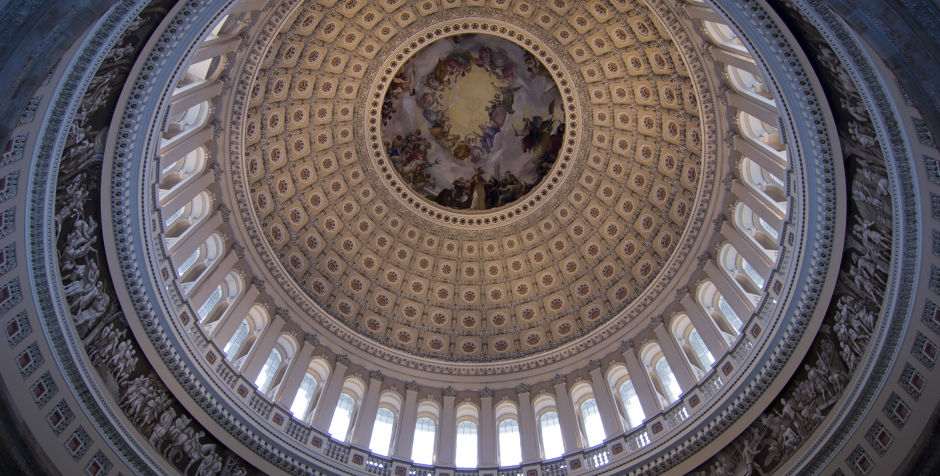Three Examples from U.S. History to Defeat Despair & Restore Our Republic
The following is the second in a series of posts from Number 1 New York Times Best Selling author Jay Sekulow’s new book, “UNDEMOCRATIC: How Unelected, Unaccountable Bureaucrats are Stealing Your Liberty and Freedom.”
The most important thing Americans can do right now is to fight against despair, the one thing—the only thing—that can truly destroy our constitutional republic.
In fact, even as I hear the anger of many of our friends and supporters, I sometimes also hear despair, a feeling that nothing we can do matters and that all proposed solutions—no matter how interesting or creative—are ultimately futile. The forces of big government have won, and all we can do is defend our shrinking liberties as long as we can.
I understand the temptation of despair. It’s hard to read the headlines and the stories in this book and not see the situation as grave, and the voice of one man or woman among 300 million can feel small. We feel like we have little impact.
But we shouldn’t think so much about our impact. Instead, let’s think about responsibilities—to ourselves, to our families, to our children, and to our children’s children. That gives us real motivation and great hope.
I love to study American history. The lessons I draw from the past are deep and meaningful, and when we forget the past we forget who we are. There’s a reason, for example, why angry atheists constantly try to change our perceptions of the past by attacking war memorial crosses or displays of the Ten Commandments, or—most egregiously in recent memory—even the display of historically significant symbols like the legendary Ground Zero cross in the National September 11 Memorial & Museum.
When you change perceptions of the past, you can alter the present and transform the future.
Sometimes, when times are bleak and I begin to lose hope, I go back to the past—to crises so great that they dwarf what we face today.
I think of the Civil War, and not just of triumphs like Gettysburg, where the Union was saved amid displays of indescribable heroism, but instead of the darkness before the dawn, when the Union army failed again and again to breach Confederate lines, and our nation teetered on the brink of extinction.
Did the Union soldiers at Fredericksburg, at Chancellorsville, at the Battles of Bull Run—did they feel like world-beaters, like they were making all the difference?
No, but they knew their duty, and they did their duty. Ultimately, they were victorious.
Similarly, I think of World War II, and not of the triumphs like Midway or D-Day, when every soldier present knew they were part of history, but instead of the dark days on Wake Island, or Bataan, or Corregidor, when victory seemed far away and the odds were overwhelming. Or what of the Marines at Chosin Reservoir in the Korean War, with a vast Chinese army surrounding them, attacking from every side?
Did these men feel like they were striking a key blow for liberty, or were they hanging on by their fingernails? Fighting for the person next to them, fighting for the chance just to stay alive?
Those men knew their duty, and they did their duty.
That is American greatness. That is why we have hope.
And it’s not just the history of courage in war that gives me hope. There was a time in this country—not too long ago—when our brothers and sisters lived as second-class citizens in their own country. They couldn’t eat at the same lunch counters. They couldn’t drink from the same water fountains. They couldn’t sit in the same seats on the same bus.
There are names that echo in history from the civil rights movement. Rosa Parks. John L. Lewis. Martin Luther King Jr. But in addition to these great leaders, there were countless others who sat where they had a right to sit, who peacefully faced attack dogs and fire hoses, all to confront a system that defied our constitutional promises, but a system so entrenched that no one alive could remember a different way. Did those people do what they did believing that their own effort would make all the difference?
No, these men and women knew what was right, and they acted, with love and courage.
That is American greatness.
As I write this book, I’ve been touched by the story of a young American doctor who went to Liberia—a desperately poor country in Africa—to provide medical care in the most difficult of circumstances. As I write, this doctor has faced death from the worst of diseases, the Ebola virus, not because he believes he can change an entire nation or provide health care to all its people, but because he believes that it is his duty, his obligation, to do what he can— whatever that may be.
That is American greatness.
That is the spirit of this country. That is the spirit that gives me hope. The answer to our challenge lies not in any specific idea— as important as ideas are—but instead in our own resolve. We are heirs to a great nation, and we are caretakers of that nation’s Constitution and liberty, its blood-bought liberty.
Impatient presidents don’t get to change the law. The same goes for unelected bureaucrats. It is time to turn the power switch off and reclaim our republic.
With that understanding, and with that sacred trust, and with the knowledge that America has confronted much longer odds in much darker times, I have confidence—I have hope—that we can, in fact, answer Benjamin Franklin’s challenge and keep our constitutional republic.
“Undemocratic” will be released on May 19th. Pre-Order NOW to join the fight to learn more about the crises we face and what we can do to restore our Republic at UndemocraticBook.com.




